
San Francisco (/ˌsæn frənˈsɪskoʊ/; Spanish for "Saint Francis"), officially the City and County of San Francisco, is a commercial and cultural center in the northern region of the U.S. state of California. The city proper is the 17th most populous in the United States, and the fourth most populous in California, with 815,201 residents as of 2021. It covers a land area of 46.9 square miles, at the end of the San Francisco Peninsula, making it the second most densely populated large U.S. city, and the fifth most densely populated U.S. county, behind only four of the five New York City boroughs. Among the 331 U.S. cities proper with more than 100,000 residents, San Francisco was ranked first by per capita income (at $133,856) and fifth by aggregate income as of 2019. Colloquial nicknames for San Francisco include SF, The City, and Frisco.
San Francisco and the surrounding San Francisco Bay Area are a global center of economic activity and the arts and sciences, spurred by leading universities, high-tech, healthcare, FIRE, and professional services sectors. As of 2018, the metropolitan area, with 6.7 million residents, ranked 6th by GDP ($884 billion) and first by GDP per capita ($131,538) across the OECD group of countries, ahead of global cities like London, Singapore, or Hong Kong. San Francisco anchors the 12th most populous metropolitan statistical area in the United States with 4.7 million residents, and the fourth-largest by economic output, with a GDP of $592 billion in 2019. The wider San Jose–San Francisco–Oakland, CA Combined Statistical Area is the fifth most populous, with 9.6 million residents, and the third-largest by economic output, with a GDP of $1.09 trillion in 2019. Of the 105 primary statistical areas in the U.S. with over 500,000 residents, this CSA had the highest GDP per capita in 2019, at $112,910. In the same year, San Francisco proper had a GDP of $200.5 billion, and a GDP per capita of $228,118. San Francisco was ranked 5th in the world and second in the United States on the Global Financial Centres Index as of September 2021.
As of June 2022, the Bay Area was home to four of the world's fifteen largest companies by market capitalization, and the city proper is headquarters to companies such as Wells Fargo, Salesforce, Uber, First Republic Bank, Airbnb, Twitter, Block, Levi's, Gap Inc., Dropbox, PG&E, Lyft and Cruise. The city is home to a number of educational and cultural institutions, such as the University of California, San Francisco (UCSF), the University of San Francisco (USF), San Francisco State University (SFSU), the de Young Museum, the San Francisco Museum of Modern Art, the SFJAZZ Center, the San Francisco Symphony and the California Academy of Sciences. A popular tourist destination, San Francisco is known for its steep rolling hills and eclectic mix of architecture across varied neighborhoods, as well as its cool summers, fog, and landmarks, including the Golden Gate Bridge, cable cars, Alcatraz, and Chinatown and Mission districts.
San Francisco was founded on June 29, 1776, when colonists from Spain established the Presidio of San Francisco at the Golden Gate and Mission San Francisco de Asís a few miles away, both named for Francis of Assisi. The California Gold Rush of 1849 brought rapid growth, transforming an unimportant hamlet into a busy port making it the largest city on the West Coast at the time; between 1870 and 1900, approximately one quarter of California's population resided in the city proper. In 1856, San Francisco became a consolidated city-county. After three-quarters of the city was destroyed by the 1906 earthquake and fire, it was quickly rebuilt, hosting the Panama-Pacific International Exposition nine years later. In World War II, it was a major port of embarkation for service members shipping out to the Pacific Theater. It then became the birthplace of the United Nations in 1945. After the war, the confluence of returning servicemen, significant immigration, liberalizing attitudes, the rise of the "beatnik" and "hippie" countercultures, the Sexual Revolution, the Peace Movement growing from opposition to United States involvement in the Vietnam War, and other factors led to the Summer of Love and the gay rights movement, cementing San Francisco as a center of liberal activism in the United States. The city has voted strongly along left Democratic Party lines for decades; in 2020 the city voted 85% to 13% in favor of President Joe Biden over Donald Trump.
The earliest archaeological evidence of human habitation of the territory of the city of San Francisco dates to 3000 BC. The Yelamu group of the Ohlone people resided in a few small villages when an overland Spanish exploration party (led by Don Gaspar de Portolá) arrived on November 2, 1769. It was the first documented European visit to San Francisco Bay.
The California Gold Rush brought a flood of treasure seekers (known as "forty-niners", as in "1849"). With their sourdough bread in tow, prospectors accumulated in San Francisco over rival Benicia, raising the population from 1,000 in 1848 to 25,000 by December 1849. The promise of wealth was so strong that crews on arriving vessels deserted and rushed off to the gold fields, leaving behind a forest of masts in San Francisco harbor. Some of these approximately 500 abandoned ships were used at times as storeships, saloons, and hotels; many were left to rot, and some were sunk to establish title to the underwater lot. By 1851, the harbor was extended out into the bay by wharves while buildings were erected on piles among the ships. By 1870, Yerba Buena Cove had been filled to create new land. Buried ships are occasionally exposed when foundations are dug for new buildings.
If you want to read a whole lot more about SF, go here:
https://en.wikipedia.org/wiki/San_Francisco
You don't have to be a Southerner to enjoy this down-home favorite. Your family will love our Chicken-Fried Steak Casserole, y'all! It's an all-in-one comforting dinner favorite.
- 1/4 cup all-purpose flour
- 1/2 teaspoon salt
- 1/4 teaspoon black pepper
- 1 1/4 pounds beef cubed steak
- 1 egg
- 1/4 cup milk
- 3/4 cup dry bread crumbs
- 1/4 cup vegetable oil
- 1 (24-ounce) package refrigerated mashed potatoes
- 3 scallions, thinly sliced
- 1/2 cup shredded Cheddar cheese
- Preheat oven to 375º. Coat an 8-inch square baking dish with cooking spray.
- In a shallow dish, combine flour, salt, and pepper. Coat steak in mixture and set aside.
- In a medium bowl, combine egg and milk; mix well. Place bread crumbs in a shallow dish.
- Dip coated steak into egg mixture, coating completely, then into bread crumbs; set aside. Discard any remaining coating mixture.
- In a large deep skillet, heat oil over medium-high heat until hot, but not smoking. Add steak and cook 6 to 8 minutes, or until juices run clear and coating is golden brown, turning occasionally.
- Place steak in single layer in prepared baking dish. Combine potatoes and scallions and spread over steak. Sprinkle cheese over top.
- Bake 20 to 25 minutes, or until potatoes are warmed through and cheese is melted.
1919 – Gower Champion, American dancer and choreographer (d. 1980)
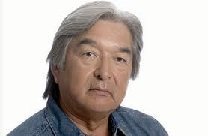
We won’t limit you or time you on this affectionate holiday. National Kissing Day on June 22nd encourages us to pucker up for a smooch. Whether the kiss comes from your significant other, your children or pets, share the love!
The kiss has been a part of our culture for thousands of years. The reasons we kiss vary, too. While affection and attraction may be the most common reason for kissing, the kiss has also been used as a greeting. In some cultures, kissing a cheek may date back to Christian rituals. In Ireland, the custom of kissing the Blarney Stone has existed for centuries and is said to bestow the kisser with the gift of eloquence and persuasiveness. Another medieval tradition that hopefully has been extinguished is the practice of kissing the feet or royalty or those in power. A similar act of kissing includes kissing the ring of someone to show fealty.
Which leads to hand-kissing. While this gesture suggests loyalty to someone, it has a friendlier connotation than that of kissing feet. For some, it’s a sign of respect and affection.
But National Kissing Day offers more than a history lesson. It encourages us to reconnect and draw closer to our loved ones. Whether it’s a peck on the cheek or a passionate kiss, when we receive one from someone we love, kissing brings joy. Kissing triggers the release of endorphins which in turn tells our brain it’s happy. When we kiss, our anxiety is reduced and our blood pressure lowers, too. Maybe those boo-boo kisses from mom carry some real power.
HOW TO OBSERVE NATIONAL KISSING DAY
Celebrate the power of a kiss. Pull your partner into a passionate kiss or practice your kissing style with them. You can also:
- Watch movies with great kissing. We suggest Cinema Paradiso directed by Giuseppe Tornatore.
- Time yourself. Can you beat the longest kissing record in the world? Ekkachai and Laksana Tiranat currently hold the record at 58 hours, 35 minutes, and 58 seconds. Sure hope they used long-lasting breath mint!
- Share a story about your first kiss.
- Not all kisses go well. Share stories of kisses gone wrong. That includes those accidental kisses.
- What’s your favorite on-screen kiss? Is it from the Breakfast at Tiffany’s, Body Guard, or Crazy, Stupid Love?
NATIONAL KISSING DAY HISTORY
While researching the history of National Kissing Day, we did not find a source for June 22nd. However, several events took place around that date starting in 2002. An episode of the United Kingdom soap opera Hollyoak aired on June 25, 2002. The episode featured characters Ellie and Ben who set a record for the longest film kiss. Actors Sarah Baxendale and Marcus Patrick kissed for three minutes and fifteen seconds in a kissing contest hosted for National Kissing Day. While they may have been celebrating the holiday in England that takes place on July 6, it’s still an impressive feat. However, other records have been set since, including some long-lasting kisses on episodes of The Bachelor.







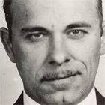
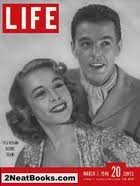
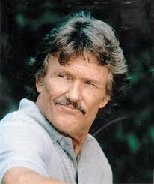
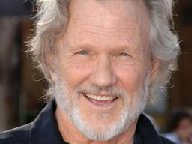
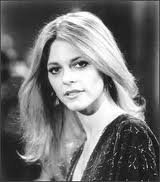
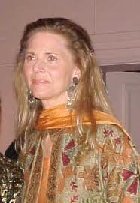
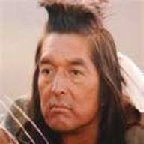

No comments:
Post a Comment